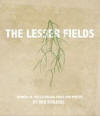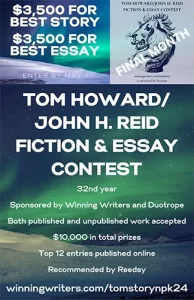The Lesser Fields
Rob Schlegel’s debut collection of poems, The Lesser Fields, winner of the 2009 Colorado Poetry Prize, creates a kind of rarefaction through decay. As Schlegel states, “I breathe away the parts of myself I no longer require.” The titles of the three sequences which comprise the book, “The Lesser Fields,” “November Deaths,” and “Lives,” seem to underscore this theme. Indeed, the collection itself feels rarified, taking up a miserly fifty-four pages, including notes and acknowledgements.
Rob Schlegel’s debut collection of poems, The Lesser Fields, winner of the 2009 Colorado Poetry Prize, creates a kind of rarefaction through decay. As Schlegel states, “I breathe away the parts of myself I no longer require.” The titles of the three sequences which comprise the book, “The Lesser Fields,” “November Deaths,” and “Lives,” seem to underscore this theme. Indeed, the collection itself feels rarified, taking up a miserly fifty-four pages, including notes and acknowledgements.
Everything in these poems is in continual danger of effacement. All structures are provisional at best. The dam is “made with leaves.” The vacant houses “threaten nothing but the public road.” The laurel has “collected a thin layer of dust.” In his poem “From a Sheet of Yellow Paper I Cut Bolts of Lightning,” Schlegel writes:
To scatter over the birds
Some dead
And some dying
All of them prepared
To return to this world as eyes
Yet this return is short lived – in his poem “Lives of Raft,” “the dead open their eyes / Stealing sight from the birds.” In Schlegel’s vanishing landscape, what is holy is what survives, a place where “the tallest trees are gods.”
This omnipresence of erasure gives the speaker an urgency to name things. Indeed, “name” is one of, if not the most frequently, repeated nouns in the book. Additionally, equation serves as the corollary to this naming. If “name” is the most repeated noun, “to be” is the most repeated verb. Most often, this equating is used in relation to the speaker himself. Equation is a way to understand oneself in a world that is falling apart. We see numerous instances of this. In “Illuminated Face,” the speaker notes that “As a man, I am free and listening. / As a bird, I am wounded and asleep.” In “Lives of Odin” the speaker states, “Who made me is not me.” Yet in a rapidly disappearing world, the speaker is left with an ever decreasing lexicon to describe the self, leading him to declare tautologically in “Lives of Furrow” that “The me is me.”
However, if a reader dismisses the world Schlegel creates as morose or fatalistic, they miss out on what is gained through loss. In The Lesser Fields, Schlegel demands “that every loss / Reveal its science.” Once one has breathed away the parts of themselves they no longer require, one sees in the absence the “length of horizon by which I measure / where I have not happened.”
Ultimately, The Lesser Fields is a harrowing collection of poems in every sense of the word. It is haunted, and in some ways, terrifyingly so; however, it also unearths and inters by differing turns of Schlegel’s sharp-edged language. And though the world Schlegel depicts may be in danger of erasure, his voice is one that will stay with a reader long after they’ve finished the text.





